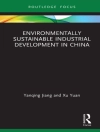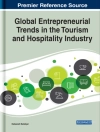In this thoroughly revised and updated edition of one of the most popular change methods in the world, Cooperrider et al. track the recent changes in the field and explain how AI can contribute to sustainability and the triple bottom line.
One of today’s most popular change methods, Appreciative Inquiry (AI) has been used to undertake transformational initiatives in dozens of organizations, ranging from Mc Donalds to the U.S. Navy to Save the Children.
The assumption of AI is simple. Every organization has things that work right-things that give it life when it is vital, effective, and successful. AI begins by identifying this positive core and connecting organizational visions, plans, and structures to it in ways that heighten energy and inspire action for change.
This book presents all of the concepts, examples, and aids necessary to engage groups of all sizes in Appreciative Inquiry. The authors provide background information on what AI is and how it works and offer sample project plans, designs, agendas, course outlines, interview guidelines, participant worksheets, a list of resources, and more.
This second edition has been extensively revised, updated, and expanded, including new case studies, new tools and supplemental articles, an expanded bibliography and resource list, and an entirely new chapter on case applications. And throughout, the authors focus on how AI can support an organizational focus on sustainability and the triple bottom line of people, prosperity, and planet.
Содержание
List of Tables, Figures, and Exhibits
Foreword
Preface
Acknowledgments
Introduction
Essential Elements of Appreciative Inquiry
Chapter 1: The Theoretical Basis of Appreciative Inquiry
Chapter 2: Appreciative Inquiry Process: How it Works
Chapter 3: Introducing, Defining and Planning an Appreciative Inquiry Initiative
Application of the 4-D Cycle of Appreciative Inquiry
Chapter 4: Discovery:
What Gives Life?
Chapter 5: Dream:
What Might Be?
Chapter 6: Design:
How Can It Be?
Chapter 7: Destiny:
What Will Be?
Learning Applications and Resources
Chapter 8: Sample Interview Guides and Summary Report
Chapter 9: AI Case Applications
Chapter 10: AI Worksheets
Chapter 11: The
AI Classics: Selected Articles
Appreciative Inquiry Bibliography
Glossary of Terms
Index
Statement of Taos Institute
Taos Institute Publications
Statement of Appreciative Inquiry Consulting
Positive Organizational Scholarship
About the Authors
Об авторе
Diana K. Whitney, Ph.D. is president of Corporation for Positive Change and cofounder of the Taos Institute and a Distinguished Consulting Faculty at Saybrook Graduate School. She is the author of five books on AI, including The Power of Appreciative Inquiry.












